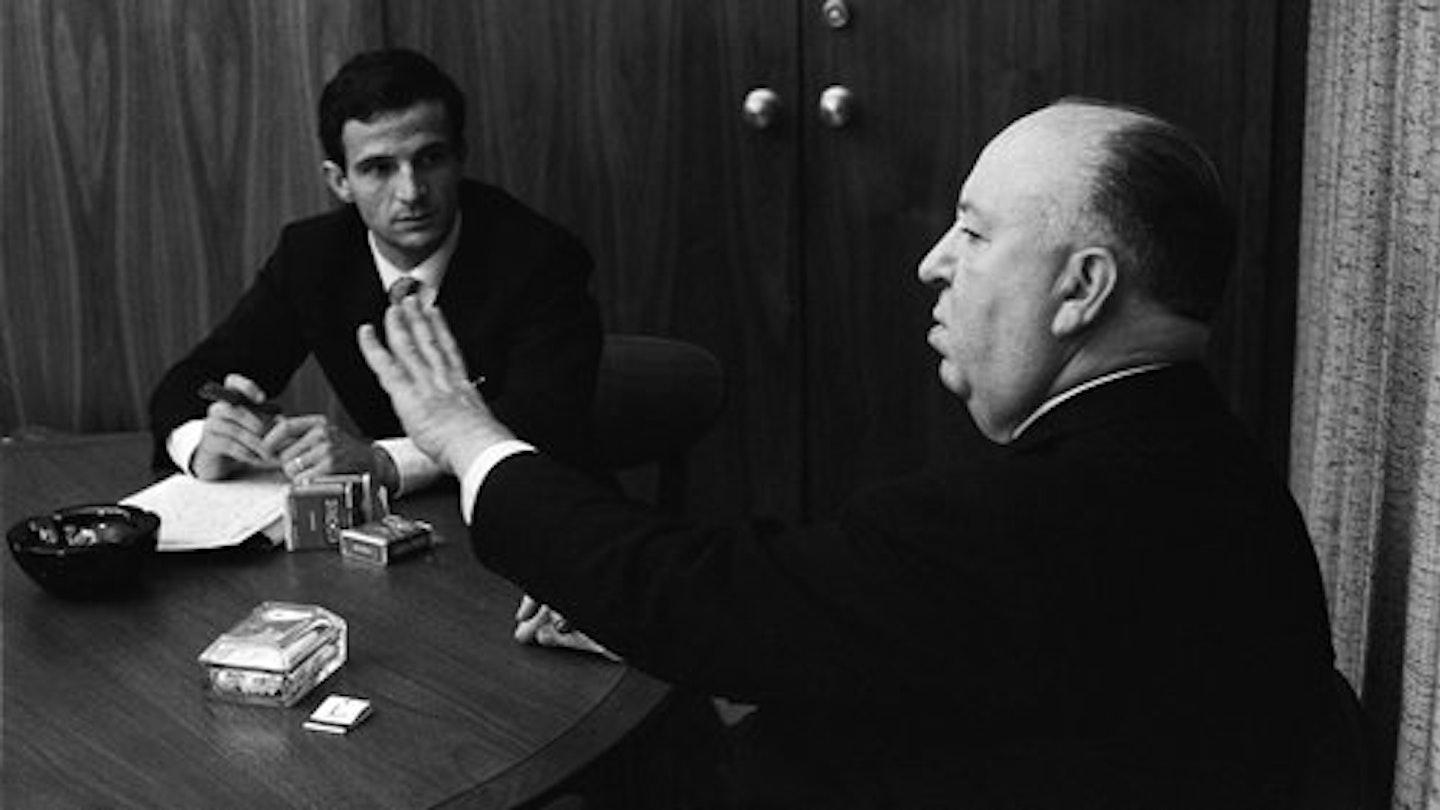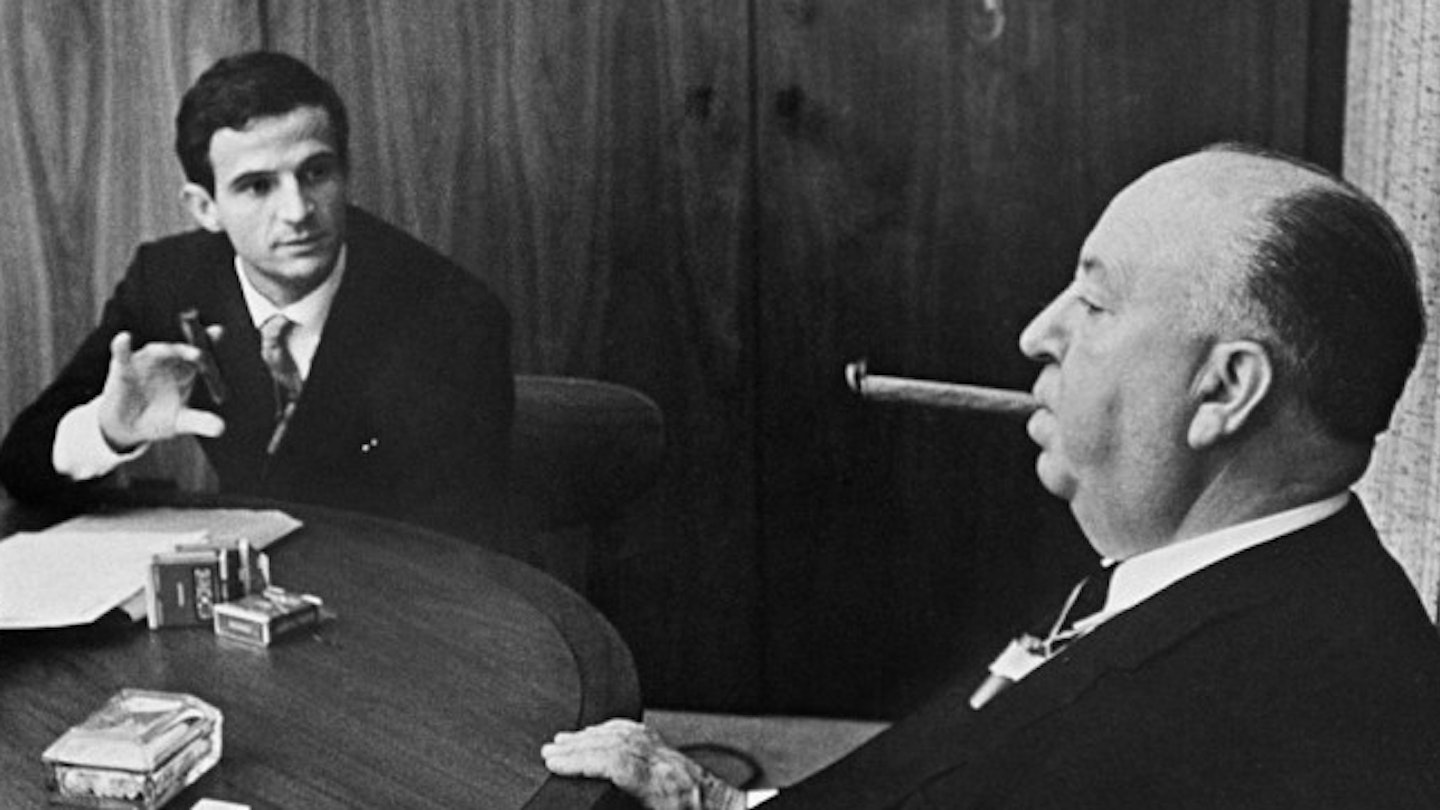In 1962, the 30 year-old François Truffaut, a leading light in the French New Wave, and the 63 year-old Alfred Hitchcock, the Master Of Suspense, met for a book-length interview that formed the basis of one of film literature’s key works, Hitchcock/Truffaut (if it were done today, it would be a Google Hangout). Kent Jones’ documentary, following his previous films about Val Lewton and Elia Kazan, charts the conversation and matters arising. Smartly illustrated by a canny choice of great clips, the result is a cinephile’s dream.
A love of movies and their head-spinning, heart-stopping power and possibilities courses through every frame.
Narrated by Bob Balaban — Truffaut’s sidekick in Close Encounters — the film falls into three sections. The first tells the story of the interview itself, an eight-day marathon tête-à-tête at Universal Studios using audio tape punctuated by pictures. Hitchcock spoke no French so Truffaut’s colleague Helen Scott does a nimble job of translating and remains the unsung hero of the whole enterprise. What’s delightful here is Truffaut’s fanboyish enthusiasm quizzing Hitchcock on his his ideal of “pure cinema” and wheedling out some tricks of the trade (in Suspicion, Hitch put a light bulb in milk to make it glow). The men share traits — in a pre-DVD/internet age both men have a ridiculous ability to recall single shots and moments — but Jones makes clear the differences. While Hitchcock jokes about his father having him arrested and locked up in jail for a gag (spawning the director’s lifelong distrust of the police), the young Truffaut was actually put in jail for truancy and theft, never knowing a compassionate father figure.
Truffaut’s intention in writing the book was to elevate the reputation of Hitchcock from pure entertainer into true artist. To explore this theme, Jones wheels in big guns as back up. Martin Scorsese, David Fincher (who calls Vertigo “so perverted”), Wes Anderson and Richard Linklater all line up to elucidate on his work and influence. The third section takes us deeper into Hitchcock’s filmography and, while it is always a privilege to listen to Scorsese talk about Psycho and Vertigo, it feels like a step into a different documentary.
Taking its cue from the book, the film feels biased towards Hitchcock over Truffaut, and for all its talk of “pure cinema” it is very much a standard talking-heads documentary. But what courses through every frame is a love of movies and their head-spinning, heart-stopping power and possibilities. If you love Hitchcock already, Hitchcock/Truffaut will give you new food for thought and a hungry desire to return to the movies. And, if you have yet to discover the director, man, are you in for a treat.

